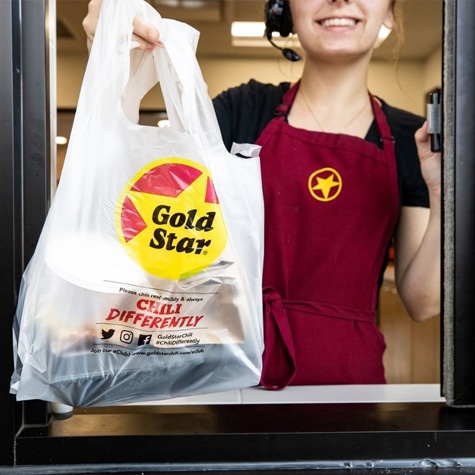Labor Shortages: 6 Ways to Recruit & Retain a Rockstar Team
 Since the pandemic, many businesses have experienced labor shortages. Learn about restaurant worker management and how to find solutions for a shortage of employees.
Since the pandemic, many businesses have experienced labor shortages. Learn about restaurant worker management and how to find solutions for a shortage of employees.
WHAT IS A LABOR SHORTAGE?
Labor shortages make it difficult for employers to find qualified candidates to fill open positions at their place of business. Different industries face different challenges and varying levels of employee shortages at different times. Some positions require a more specific skillset, while others face a higher turnover rate.
When the demand for workers is greater than the supply of qualified and available workers willing to do the job, you have a labor shortage. Recruitment becomes difficult, filling open positions takes longer, and employers may need to offer higher wages and improve benefit packages in order to attract and retain employees.
Shortages can be due to a number of factors, including health concerns, early retirement, career changes, employees’ shifting needs and demands, and more. In 2020, the onset of the COVID-19 pandemic devastated the restaurant industry, wiping out 5.9 million jobs in just over six weeks.
Even as the industry has begun to reopen and recover, workers are hesitant to return or, at the very least, have shifted their needs and priorities. Restaurants are certainly one of the industries hit hardest by labor shortages, a market already impacted by higher-than-average quit rates. The Bureau of Labor Statistics (BLS) reported that 867,000 food service workers quit their jobs in August 2021.
Facing labor shortages and high turnover rates can be both costly and time-consuming for restaurant owners, cutting into sales and customer service. While many restaurant workers who lost their jobs during the height of the pandemic due to shutdowns and layoffs chose not to return, many are more than happy to get back to work — as long as they feel valued and cared for as true members of the team.
Restauranteurs should focus less on filling positions in the short term and more on keeping and nurturing staff for the long haul. Staying fully staffed for longer will reduce the costs associated with the hiring process, as well as allow you to increase your sales and provide a more positive dining experience for guests.
So, what should managing restaurant employees look like now? And how can you attract and recruit the best of the best?
RAISE WAGES
The pandemic started new conversations about fair pay for restaurant workers and across other industries. Even with the minimum wage increasing to $15/hour and more in some states, the cost of living plus current inflation rates means that many workers are unable to live financially sustainable lifestyles on one job alone.
Healthcare, dental, life insurance, childcare, and more are often reserved for full-time, salaried employees, but many restauranteurs are making moves to provide base-level benefits for all their employees, helping them stand out to job seekers.
While labor costs can be one of the more difficult financial factors for restauranteurs to manage, offering above-market wages is a surefire way to attract potential employees. While these pay increases must be accounted for and off-set in other ways (such as slight increases in menu prices with language around livable wages), the value that a happy, long-term staff can add to your establishment is priceless.
PROMOTE GROWTH
Potential employees that see a restaurant job as short-term or having limited potential are not as likely to apply, and even less likely to invest their energy toward the future of your business. Many employees have designs on management or even ownership positions themselves and want to learn on the job in a supportive and team-oriented environment. Even those who have less ambitious long-term plans still appreciate the sense of accomplishment that comes with a job well done and a great place to work.
Letting prospective workers know they can find a home that values their skills and career goals can go a long way in attracting a stellar team. Some steps you can take include:
Promoting from within. When an employee starts as a dishwasher and is recognized for hard work to move to server, manager, and beyond, it sets the precedent that your restaurant is committed to seeing their staff reach their highest potential, an appealing prospect for other eligible employees.
Establish mentor programs. Pairing senior staff with newer members of the team will build morale and ensure that best practices are carried down.
Ongoing training and team building. From bringing in outside consultants to hosting special staff activities, if your restaurant grows a reputation for taking care of its employees, more people will want to work for and with you.
A CULTURE OF FUN
We’ve all heard the “work hard, play hard” trope, but during a labor shortage is the time to put it to the test. The majority of your employees are there because of their love of food and customer service. Providing staff discounts, priority reservations, and the occasional free meal, especially as reward incentives, will go a long way toward boosting motivation and attracting new candidates.
Beyond fun, make sure your staff feels valued with consistent communication, positive feedback, and accessibility. Fostering this kind of culture may take time, but it doesn’t cost a dime.
SQUASH BURNOUT
There isn’t a single role in the restaurant industry that’s easy. Facing long hours on your feet, constant interactions, and occasional unforeseen challenges can be stressful and lead to burnout. Providing your employees with flexible schedules, time off, and sick days can likely increase productivity and enthusiasm, boosting retention in the long run. If you see that a team member is struggling, giving them a day off certainly beats having to fill their position if they quit. And if your employees know that you’re aware of their needs, they are more likely to show up with enthusiasm.
PROMOTE DIVERSITY
Diversity, equity, and inclusion (DEI) is at the top of the list of most talked-about topics across all industries. Since the restaurant industry naturally attracts a global workforce, it is essential that you embrace all of the varying elements that make your team members special and let them know that, no matter their background, they have a place at your table.
BE HANDS-ON
If you don’t have a full-fledged HR department to handle the hiring process for your restaurant, chances are you, as the owner, will need to clock face time with prospective hires. Particularly during a labor shortage, it’s important for you to meet the candidates and for them to meet you. Sit in on interviews, shake hands, and show them what you’re all about. The restaurant business is all about hospitality and making people comfortable, after all. Making a good impression as a prospective employer will do the same as providing a warm and inviting ambiance for customers.
BUILD YOUR TEAM WITH GOLD STAR CHILI
Gold Star Chili started as a family-owned business, and that’s how we continue to treat everyone who works with us. Our franchisees are bolstered by an executive team with over 56 years of franchising experience, and aside from our award-winning chili, our name stands for excellent customer service, community support, and limitless opportunities.
To learn more about owning your own Gold Star Chili, request franchise information.



